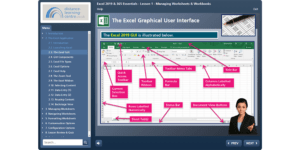Employers Guide to Adult Apprenticeships
What we do

We work with employers throughout Hull, the East Riding, North and North East Lincolnshire, helping them to support the continual personal development of their staff in areas such as; administration, customer service, IT, digital marketing, teaching assistant, team leading and more.
The aim

A common misconception is that Apprenticeships are just for young people. Each year tens of thousands of employed adults gain the skills and qualifications they need to grow and develop within their role. There is no age limit!!
How it works

Adult apprentices will work towards a particular apprenticeship standard, this includes 20% off-the-job training and collecting work-based evidence. The apprentice’s assessor will guide them through the qualification keeping the apprentice and employer up to date with their progression through 3-way reviews.
The cost

You will need to pay your apprentice’s wage, your apprentice must receive at least the minimum wage for their age group. If your annual wage bill is more than £3 you can pay for your apprentice’s training through your levy pot. If you have less than 50 employees your apprentice’s training will be fully funded. Companies with a wage bill of less than £3m and more than 50 employees are required to pay 5% of your apprentice’s training costs.
The Benefits

- To enable employers to offer staff development opportunities and qualifications that are relevant to their job role.
- A way of adding to the confidence and motivation of employees through the provision of training and accreditation of skills.
- A means of reducing labour turnover by being seen to invest in the employee.
- To make the company more attractive to potential and current employees.
- As a means to develop existing staff to add more value to the business.
- A desire to reward employees through the provision of an externally accredited qualification.
- Up-skilling existing employees so that they may be able to take on higher-level jobs.
Paperwork

Prior to your apprentice commencing employment with yourselves, we will need to carry out a health and safety assessment. This is a requirement of the Education & Skills Funding Agency (ESFA) who fund apprenticeships.
It is important to note that we will be classed as the training provider and you the employer. As such, your employee must a contract of employment.
Success

We want to work with you for years ahead and the success of your apprentice is of paramount importance to us. We will do everything we can to support you at all times and our dedicated, professional, experienced and enthusiastic team are available at all times should you need us.
The Future

Once your apprentice has achieved their apprenticeship they will have developed new skills which will hopefully have helped them progress within their role at the workplace. Many of the apprenticeships also provide the ability for the apprentice to join their relevant professional organisations.
Useful Links

National Apprenticeship Service
www.apprenticeships.org.uk
The National Apprenticeship Service, part of the Education & Skills Funding Agency, is the government agency that coordinates apprenticeships in England, enabling young people to enter employment.
Equality and Diversity
In addition to ensuring our learners are entering a safe environment, we also want them to enter a fair environment – is equality and diversity something that your organisation has considered before? Whether your business is well versed in E&D considerations, or it is something entirely new to your organisation, we believe this ACAS booklet will be of use to you.
Prevent
All employers with apprentices should exemplify fundamental British values through their behaviour and practice with learners, colleagues and other people they interact with through their work. This will include demonstrating and promoting tolerance and mutual respect as part of their Equality Duty and complying with the Equality Duty as set out in the Equality Act 2010 to prevent discrimination against people with protected characteristics.
If you would like any further information, advice or guidance on E&D or Prevent, please do not hesitate to contact us at the training centre.














